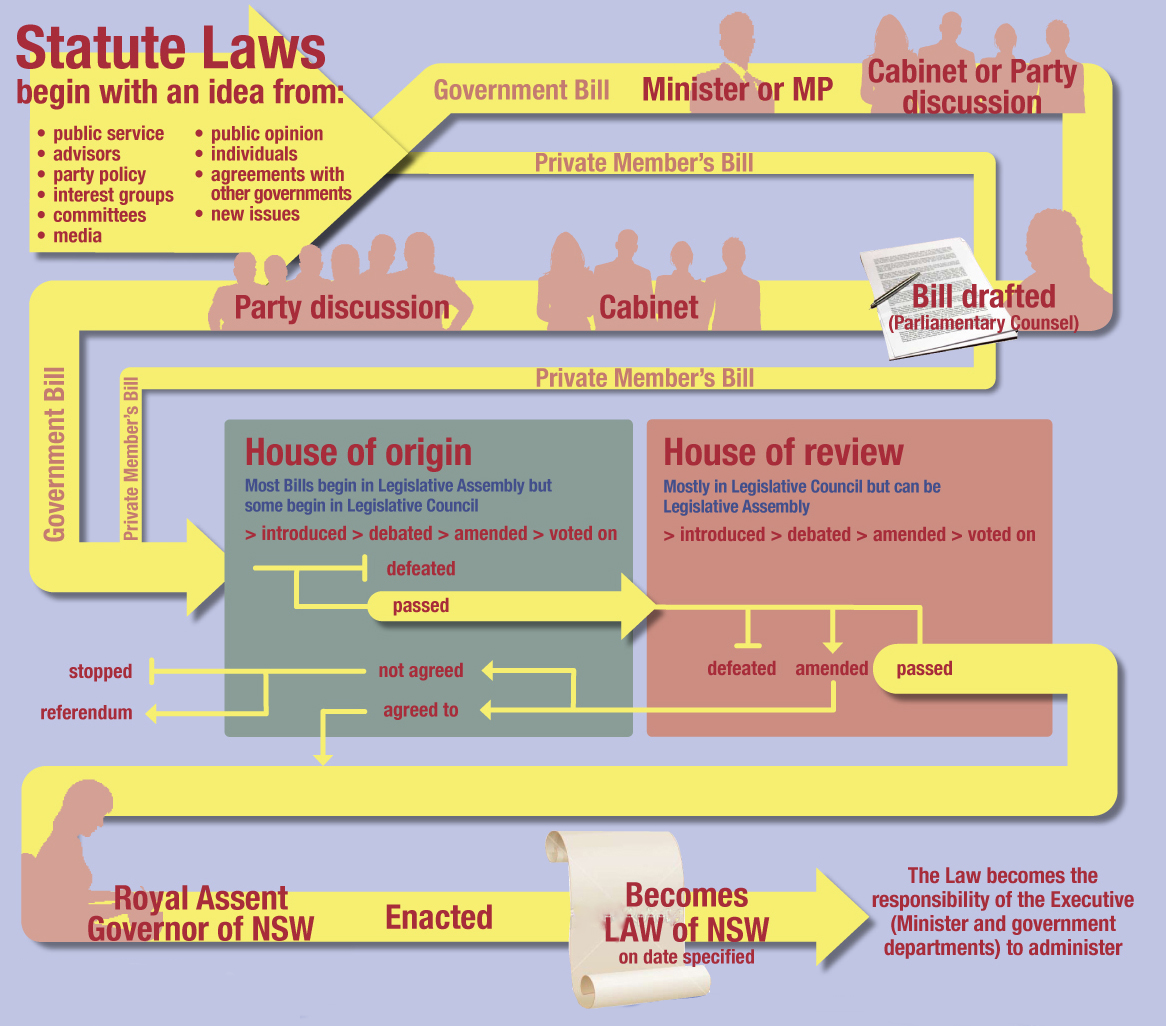There are three different types of law.
- Statute Law is the law made by Parliament. It is introduced in a Bill and, if passed, becomes an Act.
- Common Law is judge-made law, developed through centuries of precedent, or earlier judgements on cases before courts. The Commonwealth and States’ Constitutions set out the basic structure of the legal and parliamentary systems.
- Regulations are also known as Subordinate or Delegated Legislation. Some Acts only outline broad guidelines or principles, leaving details to be defined later in regulations made through a Minister (e.g. Traffic Act, Planning Laws). A Parliamentary committee reviews regulations and Parliament may alter them. This Legislation Review Committee also considers whether or not proposed bills have any negative impact on citizens’ “personal rights and liberties”.
Making
Statute Law in New South Wales follows much the same steps as in most other Australian states, the Australian Federal Parliament, and the British Parliament upon which our system of Government is based. Under a bicameral system, bills (or proposed laws) pass through several stages in both of the Houses of Parliament, before being sent to the Governor for assent. Bills that have received assent are known as Acts. Bills can be introduced into either House of Parliament, with the exception of money bills (see below) which must originate in the Legislative Assembly. Bills introduced by ministers are considered during the time allocated for government business. Bills introduced by private members are considered during the time allocated for general business.
The Passage of Legislation
Understanding an Act

